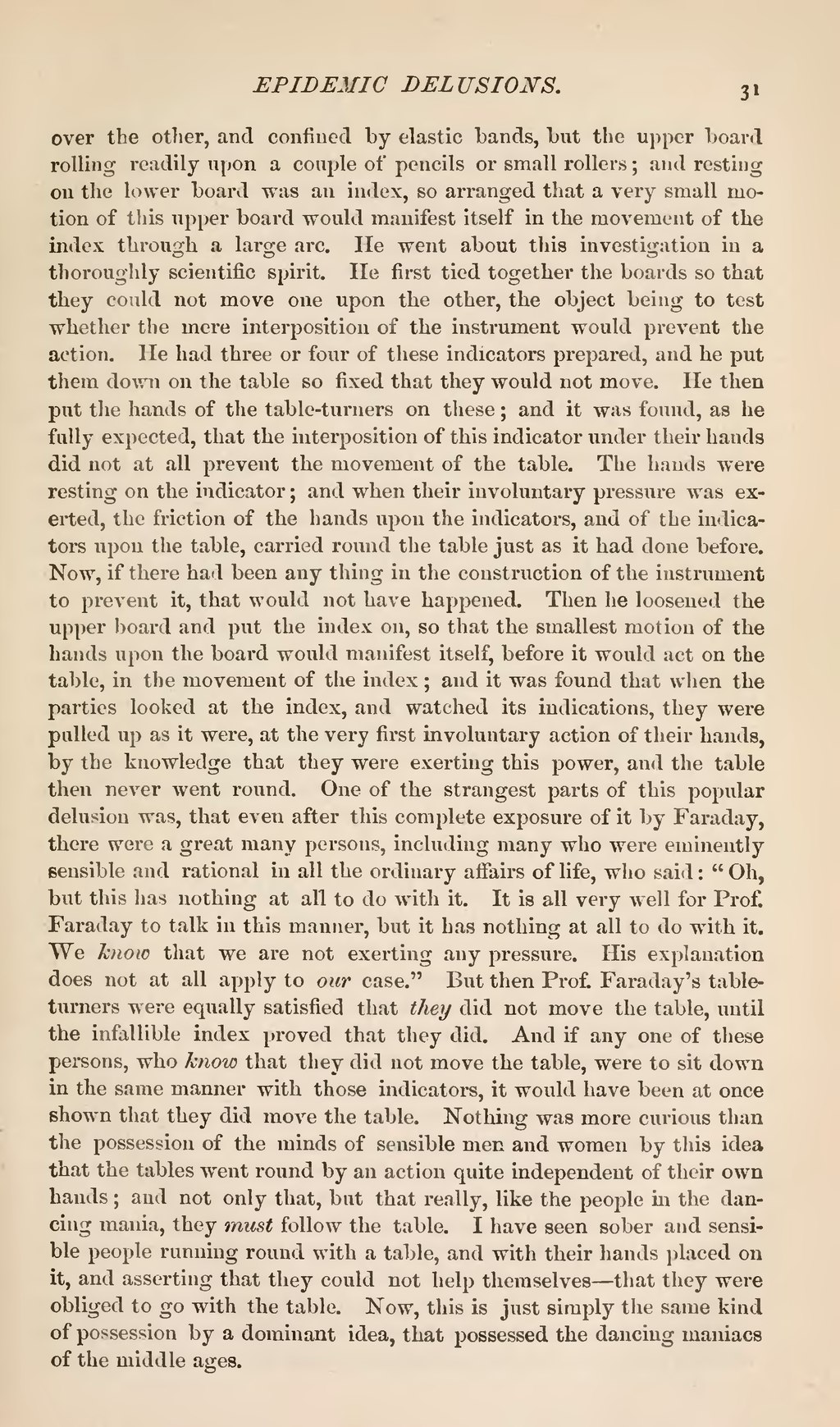over the other, and confined by elastic hands, but the upper board rolling readily upon a couple of pencils or small rollers; and resting on the lower board was an index, so arranged that a very small motion of this upper board would manifest itself in the movement of the index through a large arc. He went about this investigation in a thoroughly scientific spirit. He first tied together the boards so that they could not move one upon the other, the object being to test whether the mere interposition of the instrument would prevent the action. He had three or four of these indicators prepared, and he put them down on the table so fixed that they would not move. He then put the hands of the table-turners on these; and it was found, as he fully expected, that the interposition of this indicator under their hands did not at all prevent the movement of the table. The hands were resting on the indicator; and when their involuntary pressure was exerted, the friction of the hands upon the indicators, and of the indicators upon the table, carried round the table just as it had done before. Now, if there had been any thing in the construction of the instrument to prevent it, that would not have happened. Then he loosened the upper board and put the index on, so that the smallest motion of the hands upon the board would manifest itself, before it would act on the table, in the movement of the index; and it was found that when the parties looked at the index, and watched its indications, they were pulled up as it were, at the very first involuntary action of their hands, by the knowledge that they were exerting this power, and the table then never went round. One of the strangest parts of this popular delusion was, that even after this complete exposure of it by Faraday, there were a great many persons, including many who were eminently sensible and rational in all the ordinary affairs of life, who said: "Oh, but this has nothing at all to do with it. It is all very well for Prof. Faraday to talk in this manner, but it has nothing at all to do with it. We know that we are not exerting any pressure. His explanation does not at all apply to our case." But then Prof. Faraday's table-turners were equally satisfied that they did not move the table, until the infallible index proved that they did. And if any one of these persons, who know that they did not move the table, were to sit down in the same manner with those indicators, it would have been at once shown that they did move the table. Nothing was more curious than the possession of the minds of sensible men and women by this idea that the tables went round by an action quite independent of their own hands; and not only that, but that really, like the people in the dancing mania, they must follow the table. I have seen sober and sensible people running round with a table, and with their hands placed on it, and asserting that they could not help themselves—that they were obliged to go with the table. Now, this is just simply the same kind of possession by a dominant idea, that possessed the dancing maniacs of the middle ages.
